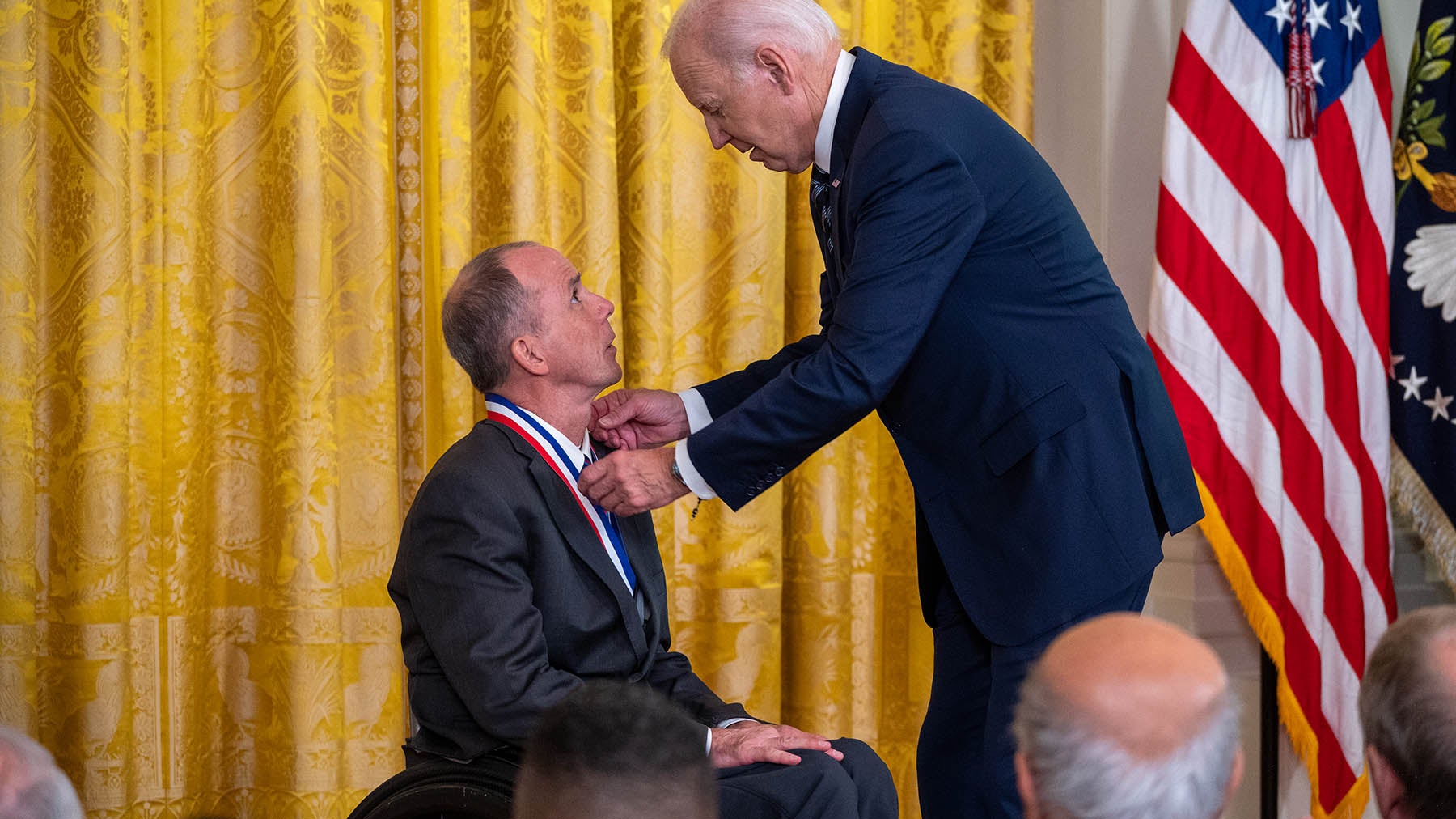AUSA Member Receives National Medal for Innovation
AUSA Member Receives National Medal for Innovation

Rory Cooper, a life member of the Association of the U.S. Army’s Fort Pitt chapter, recently was honored at the White House for his work developing cutting-edge wheelchair technologies and mobility devices.
Cooper, who works with the University of Pittsburgh and the Department of Veterans Affairs, received the National Medal of Technology and Innovation from President Joe Biden during an Oct. 24 ceremony.
Through his work, Cooper has empowered the lives of “millions of Americans,” according to the citation accompanying his award.
“By inventing and developing cutting-edge wheelchair technologies and mobility devices, cultivating the next generation of rehabilitation engineers, and championing wounded veterans and students with disabilities, he moves us closer to being a nation that is accessible for all,” the citation reads.
First presented in 1985, the National Medal of Technology and Innovation is the nation’s highest award for technological achievement, recognizing American innovators whose vision, intellect, creativity and determination have strengthened America’s economy and improved its quality of life, according to the White House.
Cooper is no stranger to innovation and big ideas.
While stationed with the Army in Germany in 1980, an accident left Cooper paralyzed from the waist down. Since then, he has become a leader in improving wheelchair technology and holds more than 20 U.S. patents.
Earlier this year, Cooper was announced as a 2023 inductee into the National Inventors Hall of Fame, where he was recognized for “innovations in wheelchair technology that have improved manual and electric wheelchairs, and advanced the health, mobility and social inclusion of people with disabilities and older adults,” according to a news release from the Hall of Fame.
He was inducted into the Hall of Fame Oct. 26.
Born in 1959 in Los Angeles, Cooper said his experience as an Eagle scout and working in his parents’ automotive and repair shop helped grow his interest in problem-solving and piecing together machinery. “That was my early introduction to engineering, working with my mother in the shop, making things,” Cooper has said.
After his accident, Cooper attended California Polytechnic State University, where he became frustrated with the limited maneuverability of his 80-pound chrome and steel wheelchair and designed his own ultralight wheelchair in his family’s shop. “Informed by his experience with building a better wheelchair for himself, Cooper researched adaptive technologies and was determined to reduce the repetitive stress injuries plaguing many users of manual wheelchairs,” the Hall of Fame news release says.
He is the founding director and VA senior research career scientist of the Human Engineering Research Laboratories, a collaboration between the VA and the University of Pittsburgh. He also is the civilian aide to the secretary of the Army for Pennsylvania (West).
“The Army taught me a lot of things that I still use to this day,” Cooper has said. “The concept of selfless service is really reinforced in the Army.”

